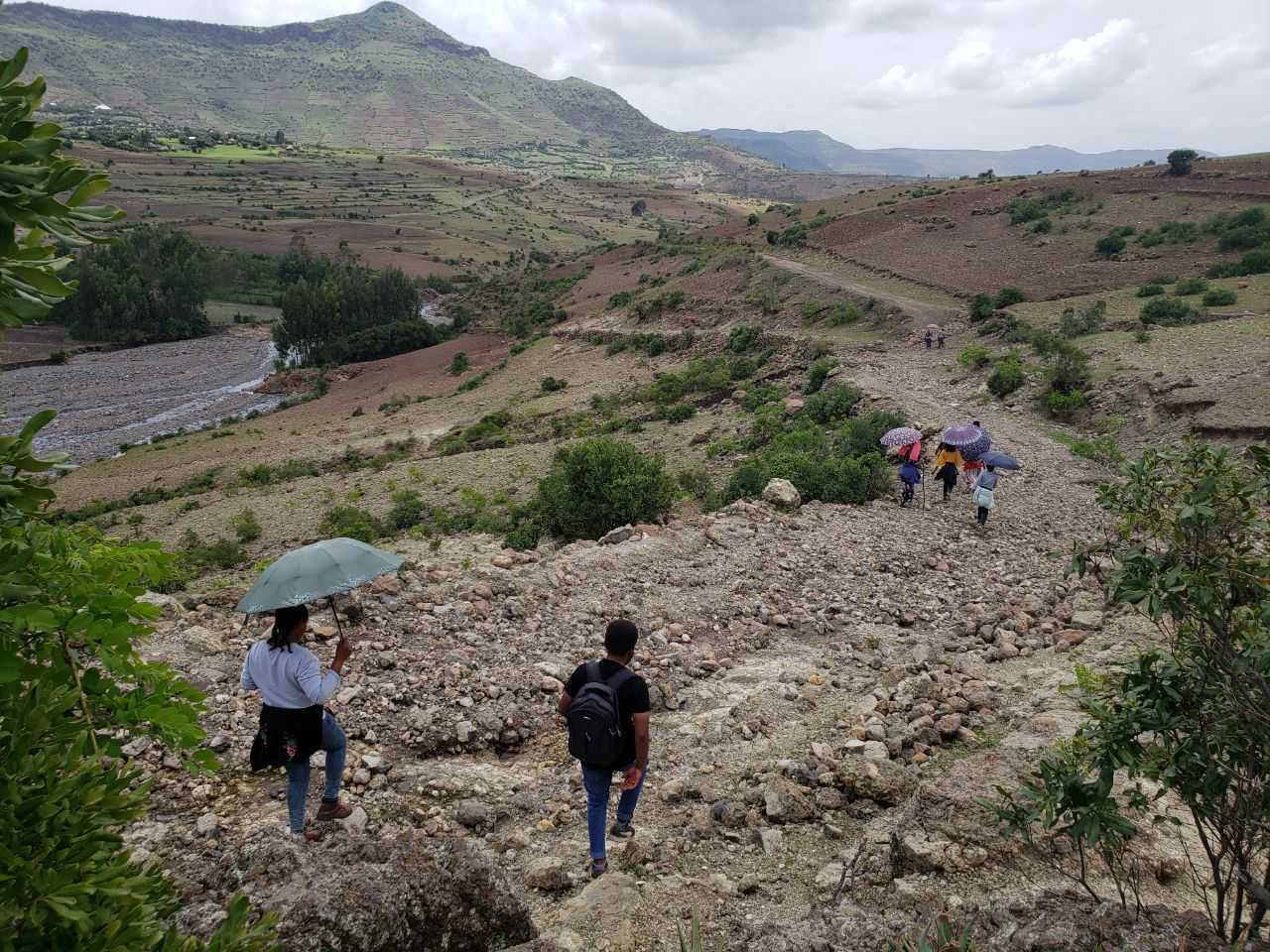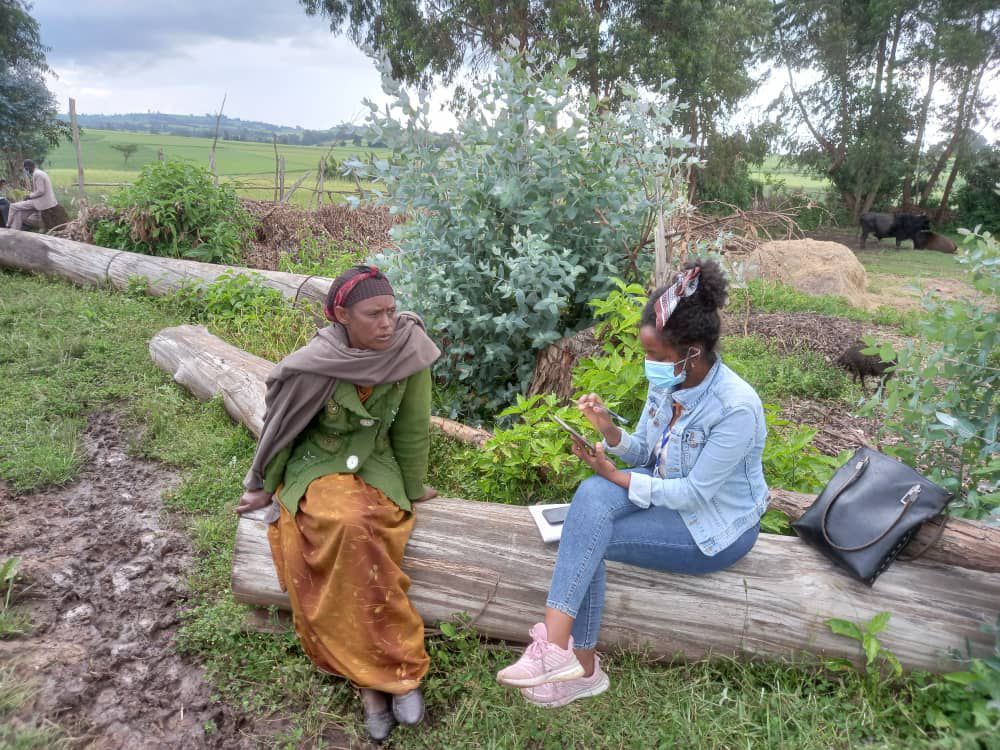In Ethiopia, we collaborate with 1,200 enumerators of whom about half are women.
Gender balance in enumerator field teams is crucial for several reasons. Firstly, they ensure that different perspectives and experiences are represented in the research process. This diversity enriches data quality and insights, leading to more accurate findings. There’s evidence that a gender-balanced field team has a direct positive impact on data quality. Secondly, gender-balanced teams reflect our commitment to ethical research practices and social responsibility. We apply this commitment to gender balance throughout our projects.
Does the gender of the enumerator matter?
Yes! We found that female and male enumerators have different strengths. Last year, Laterite was the data collection partner on a large-scale baseline survey on mental health. The survey instrument covered sensitive issues such as depression, home-based violence and gender-based violence. Following the baseline data analysis, we found that female enumerators were better at making respondents feel comfortable. This observation also aligned with learnings that females have greater rapport-building abilities. Thus, they’re more trusted by respondents when discussing sensitive topics. The gender composition of the survey team had a direct impact on the quality of data, so a deliberate decision was made to deploy 67% female enumerators for the endline survey.

Challenges to gender balance in enumerator field teams
Despite our commitment to gender equality, we find that deploying gender-balanced teams can be challenging in the Ethiopian context. This is due to various factors:
Language: In regions with diverse linguistic backgrounds like SNNPR, Sidama, Somali, Gambela, Afar, or Benishangul Gumuz, it’s difficult to recruit experienced women who also speak the local languages. In urban areas such as Addis Ababa, Amhara, or Oromia, this is less of a problem.
Protection: Women in field teams associate the presence of male enumerators as giving them protection from certain threats encountered during fieldwork. This perception can make it challenging to send majority female enumerator teams to the field, particularly in areas with safety concerns.
Family commitments: Balancing work responsibilities with family and children can also influence women’s decisions to take on data collection roles, especially if travel and overnight stays are involved.

Measures to achieving gender balance in enumerator field teams
These challenges mean that we need to take a proactive approach to ensure gender balance in our work. Here are some of the strategies we’re implementing:
Gender-sensitive field operations: We implement a ‘women first’ policy in our field operations, which includes gender-sensitive transport options and accommodations. For instance, in scenarios where only two bedrooms are available in a kebele to accommodate the team, female enumerators are given priority.
Reporting harassment: We’ve also set up a confidential reporting channel with a clear process for filing cases of harassment, discrimination and insecurity. This is accessible to both enumerators and Laterite staff. In certain cases, a formal investigation may be carried out by a third and independent party. This ultimately leads to the most appropriate corrective action.
Active recruitment: We’re actively recruiting women from diverse linguistic backgrounds and providing language training to ensure their proficiency in local languages. Beyond enumerators, we’d also like to ensure gender balance throughout our data team. Unfortunately, we haven’t had many female candidates for senior positions within our team. We struggle to reach gender balance for senior roles. Addressing this continues to be a strong priority for our data team in Ethiopia.
Career seminars: To address this, we’ve held seminars over the past two years with our female enumerator team, our People Director, and senior female management colleagues. These sessions aimed at better understanding why women aren’t applying for senior data team positions. Through this, we hope to identify the best ways to support the team’s career development.
Data team expansion: We’re also expanding opportunities for women to work in roles beyond fieldwork such as backend data management to provide alternative career paths to enumeration.
We still have a long way to go. But by addressing these barriers and implementing proactive measures, we hope to create a more inclusive space for women in data collection. Ultimately we want to ensure that gender balance is maintained across all aspects of a research study, from office to field.
This blog post was contributed by Fitsum Dagmawi, Country Data Manager in Ethiopia.
Banner image: Laterite data collection for an exit survey of recent registrants to Ethiopia’s National ID Pilot in Addis Ababa and Oromia and Sidama regions.
